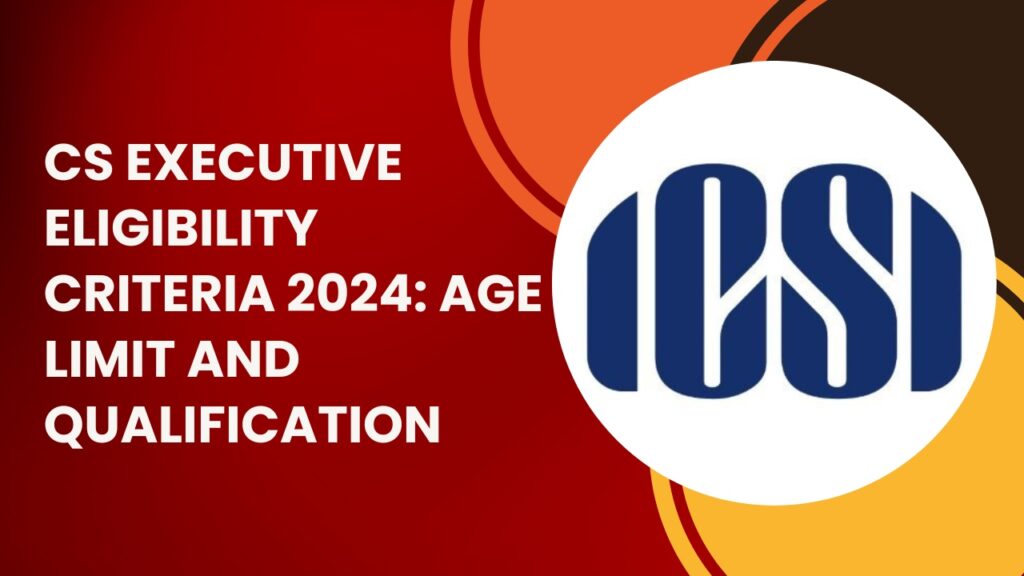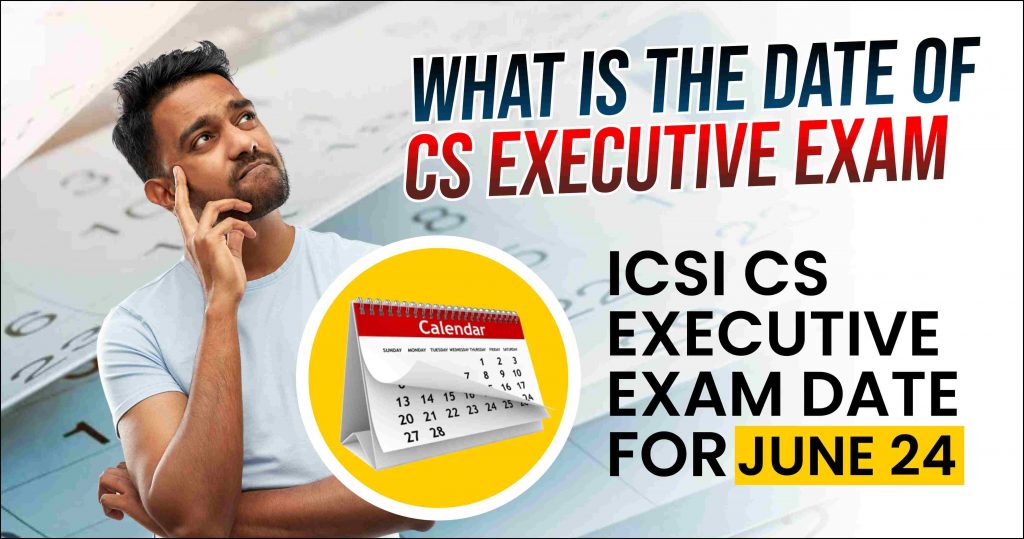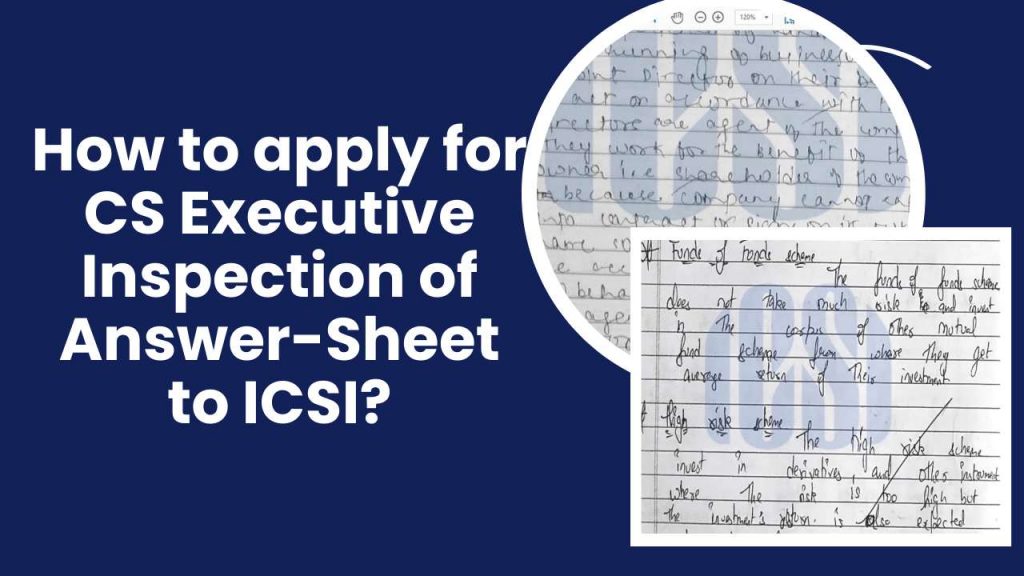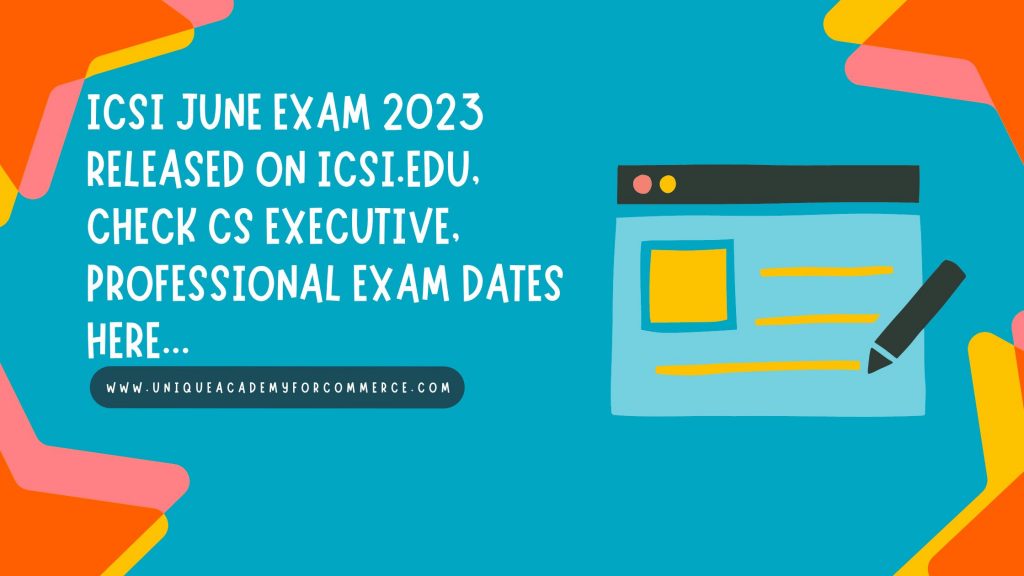The CS Executive exam, conducted by the Institute of Company Secretaries of India (ICSI), presents a crucial hurdle for aspiring company secretaries. Cracking this exam requires a well-defined strategy and a deep understanding of each subject. This article serves as your guide to conquer the CS Executive 2024 exam by providing subject-specific strategies to maximize your preparation:
CS Executive Preparation Strategy General Tips:
- Develop a comprehensive study plan: Allocate time for each subject, prioritizing areas needing more focus.
- Choose reliable study materials: Stick to trusted resources like ICSI study material, recommended textbooks, and notes from coaching institutes (if enrolled).
- Practice consistently: Regularly solve mock papers, previous years’ question papers, and practice problems to solidify your understanding.
- Focus on conceptual clarity: Don’t just memorize; strive to understand the underlying principles and application of each concept.
- Maintain a regular revision schedule: Regularly revise learned concepts to ensure knowledge retention and counter information overload.
Subject-Specific Strategies:

Paper 1: Jurisprudence, Interpretation and General Laws (100 Marks):
- Focus on understanding legal principles and their application in various situations.
- Master the art of interpreting legal language and case studies.
- Practice identifying relevant legal principles from factual scenarios.
- Pay close attention to important legal maxims and their application.
Paper 2: Company Law (100 Marks):
- Gain a thorough understanding of the Companies Act, 2013, and its various provisions.
- Focus on crucial topics like incorporation of companies, share capital, corporate governance, meetings and resolutions, and winding up.
- Practice solving case studies related to company law issues.
- Utilize flowcharts and diagrams to visualize complex company law procedures.
Paper 3: The Setting up of Business Entities and Closure (100 Marks):
- Understand different forms of business entities (sole proprietorship, partnership, companies) and their legal framework.
- Master the procedures for registration and incorporation of each entity type.
- Familiarize yourself with the legal requirements for closure/dissolution of business entities.
- Practice solving case studies based on the setting up and closure of businesses.
Paper 4: Tax Law (100 Marks):
- Develop a strong understanding of the Income Tax Act, 1961, and its various provisions.
- Learn to calculate taxable income under different heads (income from salary, business, capital gains, etc.).
- Practice solving tax computation problems and case studies.
- Stay updated on recent amendments and changes in tax laws.
Paper 5: Corporate and Management Accounting (100 Marks):
- Master the fundamentals of accounting principles and apply them to various corporate scenarios.
- Learn to prepare final accounts (Trading and Profit & Loss Account, Balance Sheet) for companies.
- Practice analyzing financial statements and interpreting financial ratios.
- Gain a basic understanding of cost accounting concepts and techniques.
Paper 6: Securities Laws and Capital Market (100 Marks):
- Understand the regulatory framework governing the Indian securities market.
- Familiarize yourself with various regulatory bodies like SEBI and their functions.
- Learn about different types of securities and their issuance procedures.
- Master the regulations related to stock exchanges and trading activities.
Paper 7: Economic, Business and Commercial Laws (100 Marks):
- Gain a broad understanding of various economic principles and their impact on businesses.
- Familiarize yourself with different business environments and their legal frameworks.
- Learn about commercial laws like Contract Act, Sale of Goods Act, Negotiable Instruments Act, etc.
- Understand the legal framework governing consumer protection and competition.
Paper 8: Strategic and Financial Management (100 Marks):
- Develop a basic understanding of financial management concepts like financial analysis, working capital management, and investment decisions.
- Learn about strategic management principles and their application in real-world scenarios.
- Familiarize yourself with various business strategies like competitive advantage, SWOT analysis, and marketing strategies.
- Practice case studies related to financial and strategic decision-making.
These are general strategies, and individual needs may vary. Adapt the approach to suit your learning style and identify areas requiring extra focus.
Old Syllabus CS Executive Preparation Strategy 2024, Subject-Specific Strategies
ICSI CSEET Registration for May 2024 at icsi.edu
By implementing these strategies, coupled with focused effort and unwavering dedication, you can confidently approach the CS Executive exam and emerge victorious.


















